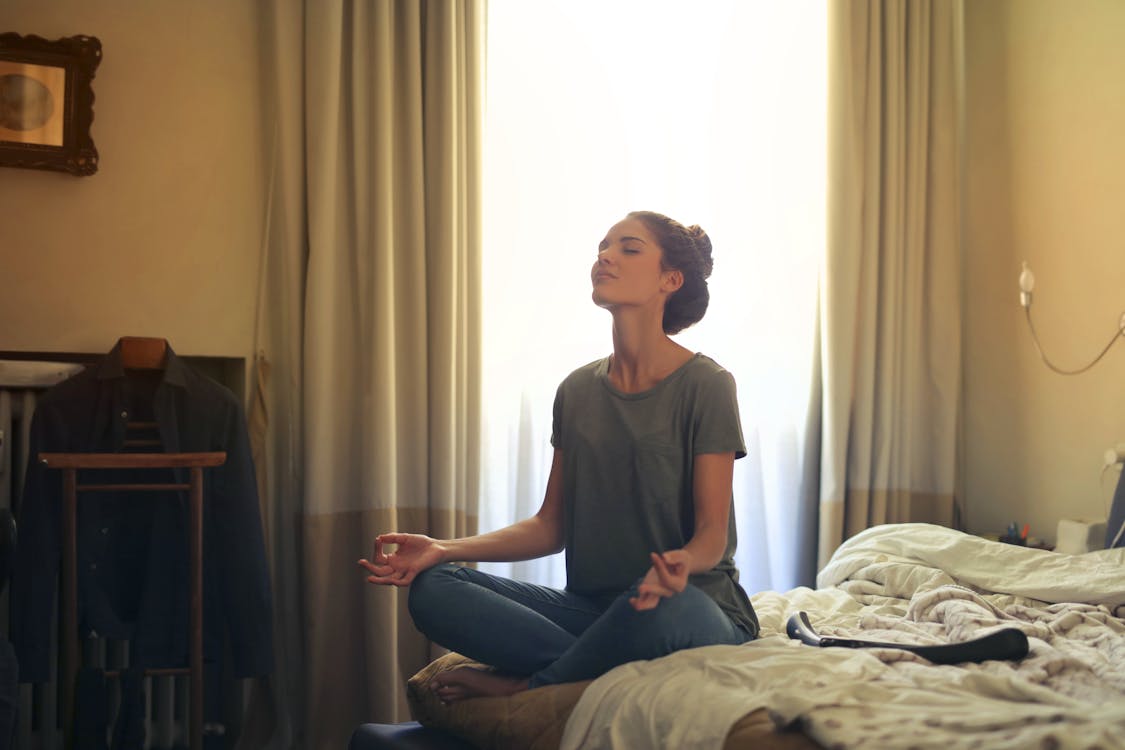"Simple Ways to Make Meditation a Daily Habit: A Guide to Inner Peace"
Meditation has been a powerful practice for centuries, providing countless benefits for mental and physical health. However, integrating meditation into a busy daily routine can seem daunting. This guide will show you practical and straightforward methods to make meditation a regular part of your life, enhancing your overall well-being.

Why Meditation is Essential
Meditation is more than just a moment of peace; it's a tool for improving concentration, reducing stress, and fostering a deep sense of inner calm. Regular meditation can also help manage anxiety, improve sleep, and boost emotional health. With so many benefits, it's no wonder that more people are looking to make meditation a part of their daily lives.
Understanding the Basics of Meditation
Before diving into how to incorporate meditation into your routine, it's essential to understand the basics. Meditation is the practice of focusing the mind on a particular object, thought, or activity to achieve mental clarity and emotional calmness. There are various types of meditation, including mindfulness, transcendental, and loving-kindness meditation, each with unique benefits.
Mindfulness Meditation: Focuses on being present in the moment, observing thoughts and feelings without judgment.
Transcendental Meditation: Involves silently repeating a mantra to settle the mind into a state of restful awareness.
Loving-Kindness Meditation: Focuses on developing feelings of compassion and love towards oneself and others.
Understanding these types can help you choose the one that best suits your needs and lifestyle.
1. Start Small: Begin with Just 5 Minutes
One of the biggest challenges people face when starting meditation is finding the time. The key is to start small. Begin with just 5 minutes a day. This short time commitment makes it easier to stick with the practice, and as you become more comfortable, you can gradually increase the time.
2. Choose a Consistent Time
Incorporating meditation into your daily routine is much easier when you do it at the same time each day. Whether it's first thing in the morning, during your lunch break, or before bed, choosing a consistent time helps create a habit. Your body and mind will start to anticipate this quiet time, making it easier to maintain.
3. Create a Meditation Space
Having a dedicated space for meditation can significantly enhance your practice. This doesn't mean you need an entire room; a small corner with a cushion, some candles, or a plant can be enough. The idea is to create a peaceful environment where you feel comfortable and undisturbed.
4. Use Guided Meditations
For beginners, guided meditations can be incredibly helpful. They provide structure and help you stay focused. There are plenty of free resources available, including apps like Headspace and Calm, or YouTube channels dedicated to meditation. These guided sessions can range from 5 minutes to an hour, catering to different needs and schedules.
5. Incorporate Breathing Exercises
Breathing exercises are a fundamental part of meditation and can be a quick way to center yourself, even if you only have a few minutes. Techniques like deep belly breathing or the 4-7-8 method (inhaling for 4 seconds, holding for 7, and exhaling for 8) can be done anywhere, helping you relax and prepare for meditation.
6. Be Patient and Non-Judgmental
It's common to feel frustrated if your mind wanders during meditation, but this is entirely normal. The goal of meditation is not to empty your mind but to become aware of your thoughts without judgment. Over time, you'll find it easier to bring your focus back to your breath or mantra. Patience is key.
7. Integrate Meditation with Other Daily Activities
You don't always need to sit in a quiet space to meditate. Mindful walking, eating, or even doing household chores can be forms of meditation. The idea is to bring mindfulness to these activities, focusing on the sensations and experiences without letting your mind drift to other thoughts.
8. Join a Meditation Group
If you find it challenging to meditate alone, consider joining a group. Whether in person or online, meditating with others can provide motivation and a sense of community. Many find that they are more consistent with their practice when they have the support of a group.
9. Reflect on Your Progress
Take time to reflect on how meditation is impacting your life. Are you feeling more relaxed? Is your concentration improving? Journaling your experiences can help you see the benefits more clearly and keep you motivated to continue your practice.
Conclusion: Making Meditation a Daily Practice
Incorporating meditation into your daily routine doesn’t have to be complicated. By starting small, choosing a consistent time, and being patient with yourself, you can make meditation a lasting habit. Remember, the benefits of meditation grow over time, so stick with it and enjoy the journey to a more peaceful and centered life.
References
- Kabat-Zinn, J. (2013). Full Catastrophe Living: Using the Wisdom of Your Body and Mind to Face Stress, Pain, and Illness. Bantam Books.
- Chiesa, A., & Serretti, A. (2011). "Mindfulness-based stress reduction for stress management in healthy people: a review and meta-analysis." Journal of Alternative and Complementary Medicine, 17(1), 83-92.
- Headspace. (n.d.). "Meditation for Beginners." Retrieved from Headspace.

 Cricket Score Counter
Cricket Score Counter Heads or Tails
Heads or Tails
You have not logged in, please Login to comment.